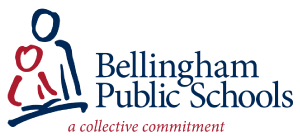Serving all aspects of The ∑¨«—”∞ ” Promise, equity, diversity, and inclusion supports equitable change in academic, social, and cultural development.Ã˝ We support teaching & learning, professional development, community engagement, and human resources, co-creating opportunities for growth, dialogue, and access.
∑¨«—”∞ ” Public Schools continues to sharpen our focus on equitable change, recognizing the benefits of growth in our community. We are proud to be a constant work in progress. We are committed to providing and sustaining inclusive education for each student in our district.Ã˝
To accomplish our mission, we will develop and support initiatives to:
- Remove institutional and systemic barriers to success,
- Increase equitable access to resources,
- Integrate diverse cultures, heritages, and identities in our classrooms, policies, and practices, and
- Advance and amplify historically silenced voices and stories in education.
The is an online archive and resource with links and teaching tools.
Teaching and Learning Resources
Addressing Hate Speech and Dehumanizing Language in SchoolsÃ˝
In the school environment, fostering a culture of respect and inclusion is essential for the well-being of students and the broader community. However, schools may also face challenges such as hate speech and dehumanizing language. As educators, administrators, and parents, it’s imperative that we work together to address these issues and create a safe and supportive learning environment for all.Ã˝
Understanding Hate Speech and Dehumanizing Language:Ã˝
Hate speech and dehumanizing language are harmful behaviors that target individuals or groups based on various identities. This type of language and behavior creates divisiveness and hostile environments, impacting student learning and development.Ã˝
Education is Key: We are implementing a Dehumanizing Language lesson in schools to help students understand diversity, empathy, and respectful communication. Students will learn to recognize and challenge hate speech and dehumanizing language, empowering them to become allies and advocates for positive change.Ã˝
Lead by Example: We will model inclusive and respectful behaviors, showing them how empathy and understanding in our interactions with others provides supportive environments where each student can thrive.Ã˝Ã˝
Diverse means of Dialogue: There are many ways for students to engage in meaningful conversations about diversity and inclusion. Student clubs, direct communication with teachers, conversations with school counselors, and cultural events provide exposure and community resources.Ã˝Ã˝
Policy and Procedures: ∑¨«—”∞ ” Public Schools has clear and transparent policies and procedures to address bias incidents and hate speech, harassment, intimidation, and bullying, and discrimination. The student discipline policy outlines corrective measures associated with various scenarios.Ã˝Ã˝
We provide support and resources for students who may be targets of discrimination and will educate and hold individuals accountable for their actions. We firmly believe that students have the right to an education unobstructed by bias, hate, and dehumanization.Ã˝Ã˝
Things We See in Our SchoolsÃ˝
- Playful use of racial slurs between friends and ‚Äúpasses‚Äù for use of dehumanizing language.Ã˝
- Angry use of racial and identity-based slurs.Ã˝
- Intentional misuse of pronouns and names.Ã˝Ã˝
- Harassment, intimidation, and bullying of students from .Ã˝Ã˝
Teaching and Learning Resources (make this an accordion)Ã˝
N-Word: The n-word continues to disrupt classrooms, hallways, athletic events, and social media conversations. Policy 3209 states that every student has the right ‚Äúto be free from bias- and hate-motivated speech and behavior in our educational environments‚Äù and ‚Äúhate speech and behavior includes, but is not limited to verbal, written, and drawn slurs‚Ķ‚Äù The video is used to prepare staff and clips of the video are shared with students in the lesson.Ã˝
What does dehumanize mean? Dehumanization occurs when someone treats another person as if they are less important or valuable than others, intentionally acting as if they don’t matter. This can happen with words, by excluding others, or making fun of individuals because of their identities. Dehumanization is hurtful and can make people feel like they’re not worthy of respect.Ã˝Ã˝
Interrupt hate speech: We teach into interrupting hate speech using the approach. Each of us plays an active role in standing up to hate speech and promoting a culture of respect in our communities.Ã˝
- Interrupt: We all can interrupt hate speech by speaking up when we hear hate speech. Everyone has different comfort levels when interrupting so it could sound like:Ã˝Ã˝
- Please don‚Äôt say that. It‚Äôs disrespectful / It‚Äôs dehumanizing.Ã˝
- That‚Äôs not funny.Ã˝Ã˝Ã˝
- That‚Äôs not okay.Ã˝
- Not cool.Ã˝Ã˝
- Question: Let’s ask questions to challenge the hate speech and encourage critical thinking. We can ask questions like, “Why do you think it’s okay to say things like that?” or “Where do you think that word came from?‚ÄùÃ˝
- Educate: We can educate others about the harmful effects of hate speech and the importance of treating each person with respect. We can share information about the impact of hurtful words and the value of diversity and inclusivity.Ã˝
- Echo: Let’s echo positive messages and values to counteract hate speech. We can repeat what the interrupter said to show support like, ‚ÄúI agree with [student name], that‚Äôs not funny,‚Äù or ‚ÄúWe don‚Äôt say that.‚Äù We can also repeat affirming statements such as, ‚ÄúEveryone deserves to be treated with kindness and respect,” or “We’re all different, and that’s what makes us special.”Ã˝
Students and adults who witness or learn about hate speech or behavior should report it to a trusted adult at the school. Another option is the where users can make anonymous reports.Ã˝ Anonymous reporters will only receive responses through Tip Line system. Be sure to record the code provided after submission.Ã˝Ã˝
Ã˝
